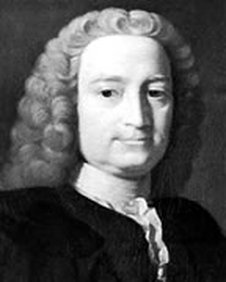Francis Hutcheson (1694-1746)

Francis Hutcheson was born on 8 August 1694 in the north of Ireland. The son of a Presbyterian minister whose own father was an emigrant from Scotland, he entered the University of Glasgow in 1710, and took his MA in 1712. Hutcheson returned to Ireland in 1718 where he was licensed as a minister and accepted an invitation to start a dissenting academy in Dublin, where he remained for the next ten years. In1725 he published his best-known work, An Inquiry into the Original of our Ideas of Beauty and Virtue, revised editions of which appeared in 1726, 1729 and 1738. In 1728, he completed An Essay on the Nature and Conduct of the Passions and Affections. With Illustrations upon the Moral Sense, which was issued in a revised form in 1742.
The widespread interest these works generated led to Francis Hutcheson’s being elected Professor of Moral Philosophy at Glasgow in 1729. He had great impact as a teacher, Adam Smith among others recording warm affection for the “never to be forgotten Dr Hutcheson”. In the late 1730s and 1740s, Hutcheson met and corresponded with Hume, who presented some challenging criticism of his work. Hutcheson in turn stimulated the development of Hume’s philosophical position but he did not support his bid for a professorship at Edinburgh in 1745. In 1742 his Philosophiae moralis institutio compendiaria appeared along with the Metaphysicae synopsis, later revised in 1744 as Synopsis metaphysicae. The Compend, as the Latin work on moral philosophy and natural law is commonly known, appeared in a new edition in 1744, and in a translation after his death in 1747. Hutcheson’s Logicae compendium also appeared after his death. His last efforts were devoted to completing A System of Moral Philosophy, which his son published posthumously in 1755, Hutcheson having died on a visit to Dublin in 1746.
Enlightenment Philosophers
- Alexander Gerard ((1728-1795)
- Gershom Carmichael (1672-1729)
- Archibald Campbell (1691-1756)
- Francis Hutcheson (1694-1746)
- Henry Home, Lord Kames (1696-1782)
- Robert Wallace (1697-1771)
- George Turnbull (1698-1748)
- Thomas Reid (1710-1796)
- David Fordyce (1711-1751)
- David Hume (1711-1776)
- James Burnett, Lord Monboddo (1714-1796)
- Hugh Blair (1718-1800)
- George Campbell (1719-1796)
- William Robertson (1721-1793)
- Adam Smith (1723-1790)
- Adam Ferguson (1723-1816)
- John Millar (1735-1801)
- James Beattie (1735-1803)
- Dugald Stewart (1753-1828)
- Archibald Alison (1757-1839)